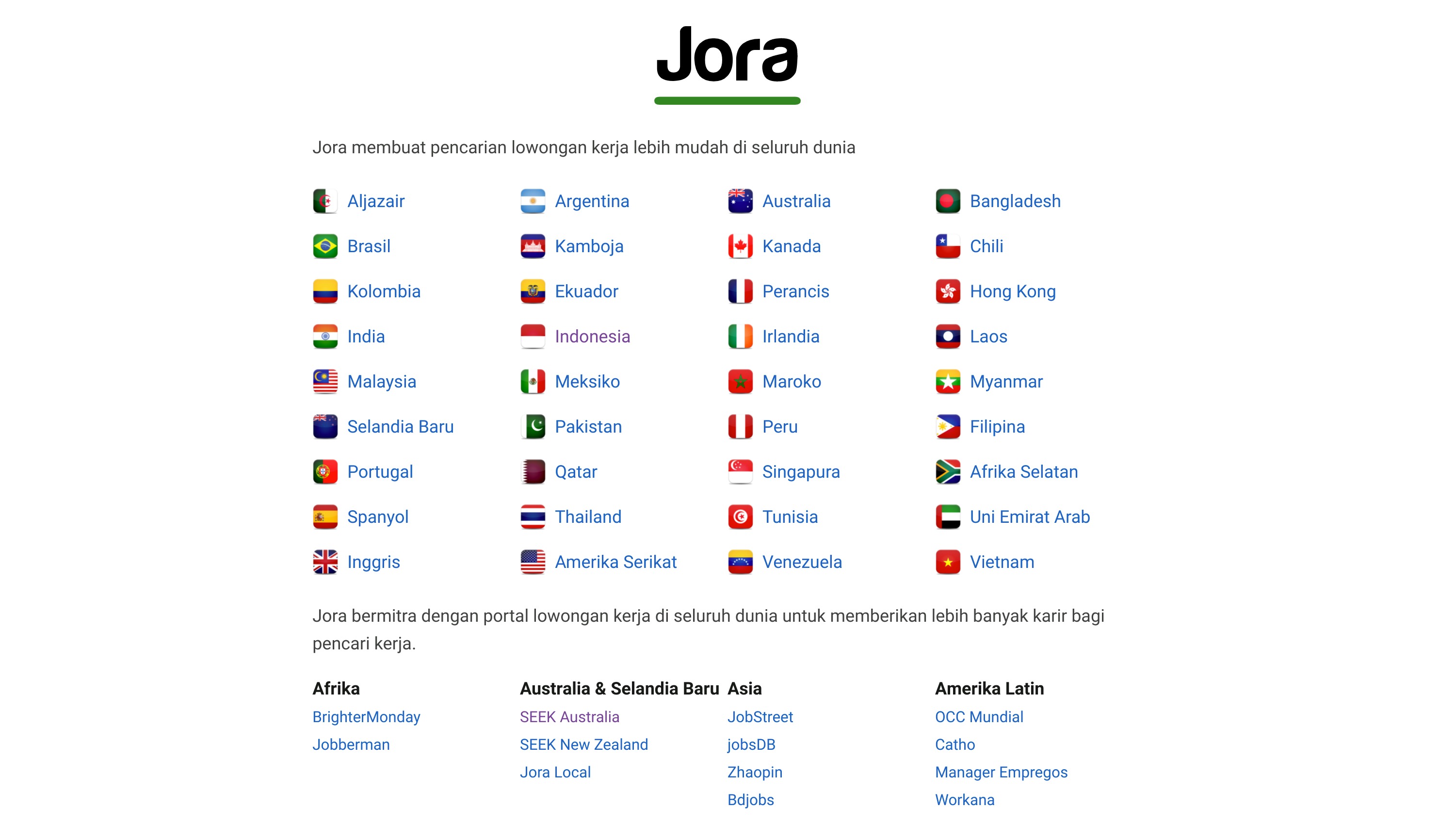26 websites and tips to help you hire the right writer
It's essential you get the right writer for your business. This guide has tips on what to consider before hiring one, as well as where to find them.

Whether you’re aiming to enhance your brand’s voice, improve SEO rankings, or create compelling narratives that resonate with your audience, the right writer can make a significant difference. From content writers who craft engaging blog posts to copywriters who create persuasive marketing materials, and technical writers who simplify complex information, each type of writer serves a specific purpose in a business's content strategy.
However, finding and recruiting the right writers can be a time-consuming process. While it’s relatively easy to find applicants from various sources, the challenge lies in selecting the right candidate with the appropriate skill set and within your budget.
To help you navigate this process, this article explores 26 different platforms available for finding writers and to offer tips on how to identify and hire the best fit for your organization.

Websites to hire writers
- ContentGrow
- All Freelance Writing
- Hubstaff Talent
- Writer.me
- Editorial Freelancers Association (EFA)s
- Freelance Writers Den
- The National Association of Science Writers (NASW)
- Upwork
- People per Hour
- Freelancer
- Facebook Groups
- Horkey HandBook
- YunoJuno
- The Writer Finder
- Writer Access
- Textbroker
- Contently
- Indeed
- Jora
- FlexJobs
- Problogger
- WorkingInContent
- Fiverr
- Guru
- Constant Content
- Truelancer
Hire a writer: tips and things to consider
- Choose experts in your area
- Check skills and attitude
- Create an onboarding process
- In-house writers versus freelance writers
- Setting the budget
- Hiring the right writer
Hire blog writers: tips and insights
- Why is a company’s blog important?
- Things to know before you decide to hire blog writers
- How much should blog writers be paid
- What to look for when hiring great blog writers?
- Important: take time to properly onboard your blog writers
- Frequently asked questions about hiring freelance writers
Platforms to help you hire a writer
Hire freelance writers
The first type of platform that we will discuss is focused on helping you hire freelance writers. These include writer directories, dedicated job boards, and e-marketplaces.

1. ContentGrow

Type of writer: Freelance journalists and content creators, particularly those with experience in media, PR, and specialized niches.
Key features: Managed marketplace, project management tools, payment processing, and talent vetting.
Pros: Highly vetted talent, tailored matches for specific industry needs, seamless cross-border payments.
Cons: Limited to certain industries (e.g., journalism, PR), may not be as broad as other platforms.
G2 rating: 5.0/5.0 (2 reviews)
Pricing: Service fees apply to both clients and freelancers.
Launched in 2019, ContentGrow can be a good solution to help you look for hand-picked freelance talent that is appropriate for your projects and budget. Using the app is quite straightforward. Click here to get your own shortlist of writers curated or sign up for a company account. The ContentGrow team will help provide a vetted list of candidates for you to choose from.
It’s all free up until this point. If you’re happy with the candidates, you can then work with them directly via the app’s private virtual workspace. ContentGrow charges a small commission to both buyers and sellers, but the time and energy saved are well worth it.
One of the benefits of working with ContentGrow is that you can request a new batch of freelance candidates regularly. This is normal, as you may want to update or build out your talent roster once in a while or find new writers with specific expertise.

2. All Freelance Writing

Type of writer: A broad range including blog writers, copywriters, technical writers, and more.
Key features: Job board, resources for freelance writers.
Pros: Offers a job board specifically for writers, easy to navigate.
Cons: Less structured vetting, so quality may vary.
Pricing: Free for writers; clients post jobs at their rates.
Founded in 2006, All Freelance Writing allows you to browse its 2,500+ freelance writer database. The site claims that most of its writers are veterans and that they only accept a starting fee of US$50 per article.
Just like Freelance Writer’s Den, the writers need to pay to be listed in the database. All Freelance Writing has a job board, but it’ll cost you to post job ads there.
3. Hubstaff Talent

Type of writer: General freelancers, including content writers and copywriters.
Key features: Free job posting, time tracking, and project management tools.
Pros: No fees for freelancers or clients, wide range of talent.
Cons: Lack of specialized focus, may require more effort to find high-quality writers.
G2 rating: 4.4/5.0 (6 reviews)
Pricing: Free to use for both parties.
Launched in 2016 by time tracking tool Hubstaff, ‘Talent’ is a service marketplace. You can post job ads and browse the freelancer database for free. Unlike the other platforms here, freelancers and agencies can also sign up for a free account.
Currently, Hubstaff Talent’s database has over 8,000 writers.

4. Writer.me

Type of writer: Specialized in content marketing, copywriting, and SEO.
Key features: Easy-to-use platform, focus on content marketing.
Pros: Niche focus on content marketing, streamlined hiring process.
Cons: Smaller pool of writers compared to larger platforms.
Pricing: Varies by project and writer experience.
The US-based Writer.me has a free writer directory for employers to browse. Although the directory only holds around 100 writers, the ones listed have gone through an expensive content marketing certification course by SmartBlogger. It’s safe to say that the listed writers have demonstrated strong resolve in their profession and aren’t beginners.
5. Editorial Freelancers Association (EFA)

Type of writer: Editors, proofreaders, writers, and other editorial professionals.
Key features: Networking opportunities, professional development, job board.
Pros: High-quality, vetted professionals, strong industry reputation.
Cons: Membership fee required to access full features.
Pricing: Membership fee + individual project pricing.
The US-based EFA is another free freelance writer directory that you can use. Currently, it holds around 2,600 members with various editorial capabilities. You can use its moderated job board to post job ads for free.
EFA charges its members to be listed in its directory.
6. Freelance Writers Den

Type of writer: Freelance writers focused on content creation and marketing.
Key features: Job board, educational resources, community forums.
Pros: Community-driven, strong educational resources.
Cons: Membership required, may be more focused on beginners.
Pricing: Monthly membership fee.
Launched in 2017, the US-based Freelance Writers Den has two key features: a writer directory and a job board. Both are free to use for employers.
There are around 1,200 writers in the platform’s database at the moment. ‘The Den’ earns money by charging writers to access its features.

7. The National Association of Science Writers (NASW)

Type of writer: Science writers and journalists.
Key features: Networking, professional development, job board.
Pros: Specialized in science writing, networking with experts.
Cons: Highly niche, may not be suitable for non-science topics.
Pricing: Membership fee required.
As the name suggests, NASW is a good place if you’re looking to find freelance science writers. The US-based association was created way back in 1934, and today offers a free writer directory for employers. At the moment, NASW has around 2,400 members.
The website also allows employers to post one-off freelance job ads for free. For other types of gigs, you will need to pay for it.
NASW charges its members to join its directory. On top of that, new members also need to qualify by submitting recent work samples and receiving endorsements from other members.
8. Upwork

Type of writer: Wide range including content writers, technical writers, and more.
Key features: Escrow payment system, time tracking, messaging platform.
Pros: Large pool of freelancers, flexible pricing.
Cons: Varying quality, fees for both clients and freelancers.
G2 rating: 4.6/5.0 (1768 reviews)
Pricing: Service fees apply to both clients and freelancers.
This is a popular US-based service marketplace to help you find various types of freelancers in different countries, including writers. You can either start by posting a project ad, or by browsing the freelance writer database on Upwork. The platform will then take a commission from both employers and freelancers for all purchases made.

9. People per Hour

Type of writer: General freelancers, including content writers.
Key features: Project bidding, fixed-price projects, messaging.
Pros: Flexible hiring options, global talent pool.
Cons: High competition, mixed quality.
G2 rating: 3.0/5.0 (37 reviews)
Pricing: Fee structure similar to Upwork.
UK-based People per Hour is another marketplace that you can use to find and work with freelancers in multiple countries. Similar to Upwork, you can post a project ad or browse its database to start hiring freelance writers. People per Hour will then charge fees to buyers and sellers for every project.
At the moment, the platform claims to have around 10,000 freelance writers in its database.
10. Freelancer

Type of writer: General freelancers, including writers for various niches.
Key features: Project bidding, contest feature, milestone payments.
Pros: Large user base, diverse project types.
Cons: High competition, mixed quality, complex interface.
G2 rating: 3.7/5.0 (95 reviews)
Pricing: Project fees + optional upgrades.
Founded in 2009 in Australia, Freelancer is another service marketplace to look into. Users post a project ad, then receive candidate applications for the gig. The platform will take a commission for all work done inside the platform.
Unlike other more elite platforms, however, you will be able to find more budget-friendly (and therefore likely ‘greener’) talent on Freelancer.

11. Facebook Groups

Type of writer: Varies by group; includes content writers, copywriters, and niche specialists.
Key features: Networking, job postings, community support.
Pros: Community-driven, often free to join.
Cons: No vetting process, varying quality.
Pricing: Free to join groups.
If you have more time up your sleeve, you can dig into various freelance writer groups inside Facebook. The problem is, most of the groups that you’ll come across won’t be of high quality and have high spam rates. But this doesn’t mean there aren’t good groups to join for finding freelance talent. Here are two groups to consider.
While the Freelance Content Marketing Writer only has 6,600 members, the discussions are lively and interesting. The group is also open to the occasional job post.
Freelance Copywriter Collective (job board) is a group exclusively for freelance writer job posts with 14,800 members.
12. Horkey HandBook

Type of writer: Virtual assistants, freelance writers, and bloggers.
Key features: Training courses, job board, community support.
Pros: Focus on training and education, supportive community.
Cons: Primarily for beginners.
Pricing: Course fees + membership options.
Established in 2014, freelance writer Gina Horkey developed a new business model to help people become thriving virtual assistants. She makes money by selling her courses and giving job leads to more than 5,000 students.
Businesses can use Horkey’s services to look for virtual assistants for various tasks, including freelance writing. Please note that her community charges at least US$20 per hour.

13. YunoJuno

Type of writer: High-end freelancers including copywriters and content strategists.
Key features: Freelancer vetting, project management, payment protection.
Pros: High-quality vetted talent, project management tools.
Cons: Primarily UK-based, higher costs.
G2 rating: 4.7/5.0 (89 reviews)
Pricing: Service fee on top of freelancer rates.
You can give this a try if you’re looking for UK-based writers. Established in 2012, YunoJuno is a freelance marketplace that claims to have more than 30,000 curated talents ready to tackle various jobs including freelance writing.
YunoJuno’s business model involves a booking fee for each assignment created its platform.
14. The Writer Finder

Type of writer: Content writers with a focus on SEO and content marketing.
Key features: Quick writer matching, focus on content marketing.
Pros: Quick matching process, focus on content marketing.
Cons: Smaller talent pool.
Pricing: Subscription model + per-project fees.
The Writer Finder does as the name implies. Fill out a survey about your company, budget, and content needs, and the team will go through a writer database to those that suit your project. It costs US$250 to find up to five writers based on your preferences, with a 72-hour turnaround time. If you’re not satisfied with the list, the company will keep giving you new ones. If they can’t find anyone that meets your needs, the US$250 finders fee can be refunded.

15. Writer Access

Type of writer: Content writers, copywriters, and creatives.
Key features: Rating system, project management tools, marketplace access.
Pros: Vetted talent, a wide range of specializations, rating system.
Cons: Expensive compared to other platforms.
G2 rating: 4.0/5.0 (41 reviews)
Pricing: Membership plans + per-word/project fees.
By paying a platform subscription fee, users gain access to the company’s talent and content creation platforms. It has a database of over 16,000 freelance writers, of which you can browse via keyword search, casting calls, and AI-based matching. Writer Access allows you to purchase content based on length and writer expertise, ranging from US$0.02 to US$1 per word for higher quality pieces.
16. Textbroker

Type of writer: Content writers at varying levels.
Key features: Tiered writer quality, quick turnaround.
Pros: Easy to use, tiered pricing based on writer quality.
Cons: Quality can vary widely, lower-tier writers may not meet high standards.
G2 rating: 3.8/5.0 (5 reviews)
Pricing: Starts at $0.02/word.
Textbroker offers three levels of pricing so you can determine both the quality level and budget for your content. The first option is OpenOrder, where you can buy content starting from US$0.15 per word. The other options are DirectOrder, where you can commission an author of your choice, and TeamOrder, where you can create your own team of hand-picked writers. Both of these services are available starting from US$0.27 per word.

17. Contently

Type of writer: Experienced content marketers, journalists, and strategists.
Key features: Content strategy tools, high-quality writing, client-vetted matches.
Pros: High-quality, vetted talent, robust analytics.
Cons: Expensive, long wait times for work.
G2 rating: 4.6/5.0 (96 reviews)
Pricing: Premium rates, with top writers earning $0.60/word.
Just like Newscred, the US-based Contently specializes in offering end-to-end content marketing solutions to big firms. Contently claims to have a database of more than 140,000 content creators. If you have a large budget to work with, then Contently may be a solution for you.
Hire freelance, part-time, and full-time writers
If you’re looking for platforms to help you hire a writer on a more permanent basis, then the ones we’d recommend would be job boards. Of course, you can also use the same platforms to help you find freelance and part-time talent. Here are several you can look into:
18. Indeed

Type of writer: Wide range including content writers, copywriters, and editors.
Key features: Job search engine, resume database.
Pros: Extensive job board, easy to use.
Cons: Not specialized in writing jobs, mixed quality.
G2 rating: 4.3/5.0 (606 reviews)
Pricing: Free for basic job posts; premium options available.
This is one of the biggest free job boards out there. Indeed currently has 60 local versions and 28 languages to help you hire a writer worldwide. It’s free to post job ads on Indeed. Paid features allow ads to gain more visibility.
https://www.contentgrip.com/hire-freelance-press-release-writers/
19. Jora

Type of writer: General job search, including writing jobs.
Key features: Job search engine, global reach.
Pros: Free to use, global reach.
Cons: Not specialized in writing, mixed quality.
Pricing: Free to post and search jobs.
Similar to Indeed, Jora offers a free job board with multiple local versions all around the globe. The Australia-based platform currently has 36 local sites, which you can use for free.
Launched in 2012, Jora is part of Australia-based publicly traded business group SEEK.

20. FlexJobs

Type of writer: Freelance writers, copywriters, and remote workers.
Key features: Vetted job postings, remote work focus.
Pros: Focus on remote and flexible jobs, vetted job postings
Cons: Membership fee required, not exclusively for writers.
G2 rating: 4.5/5.0 (3 reviews)
Pricing: Monthly membership fee.
US-based FlexJobs was launched in 2007 to help connect employers with remote workers via a paid job board. If you’re open to the idea of working with a remote in-house writer (which is quite common), then this can be a good place to check out.
Alternatively, you can try submitting up to five job ads for free on FlexJobs. However, these will be moderated and there’s no guarantee that yours will get approved.
21. Problogger

Type of writer: Bloggers and content writers.
Key features: Job board, blogging resources.
Pros: Niche focus on blogging, strong community.
Cons: Limited to blogging and content writing.
Pricing: Free to browse; paid job postings for employers.
Launched in 2004, US-based ProBlogger offers a paid job board. The job board is dedicated to writers and bloggers, and it will help you receive appropriate applicants at a better rate than generic job board sites like Indeed.
22. WorkingInContent

Type of writer: Content strategists, UX writers, and content designers.
Key features: Job board, community and resources, networking
Pros: Specialized in content strategy roles, strong focus on UX.
Cons: Niche market, smaller job board.
Pricing: Free to browse; job postings are paid.
With a beta launched in 2020, WorkingInContent is a job portal exclusively for people who work in the field of content. With an impressive client list that includes names like Google, Amazon, Facebook, and PayPal, each job post costs a steep U$300, with an extra US$100 for additional exposure.

23. Fiverr
Type of writer: Content writers, copywriters, SEO experts, technical writers.
Key features: Multi-category services, secure payment, customizable gig packages.
Pros: Affordable, wide variety of freelancers, quick turnaround.
Cons: Varying quality, service fees for both buyers and sellers.
G2 rating: 4.3/5.0 (431 reviews)
Pricing: Starts at $5 per job.
Fiverr is a popular platform that connects businesses with freelancers across more than 700 categories, including content writing, digital marketing, and programming. While posting a job on Fiverr is free, businesses can choose to purchase additional services like Fiverr Pro for enhanced visibility and access to top-tier freelancers.
Recently, Fiverr has introduced new AI-powered tools like Fiverr Neo, which simplifies the process of finding the right freelancer by using advanced algorithms to match clients with professionals based on their specific needs. This feature, along with the option for freelancers to offer hourly rates, makes Fiverr a flexible solution for both short-term and ongoing projects.
24. Guru
Type of writer: Content writers, technical writers, marketing copywriters.
Key features: SafePay for secure payments, detailed project management tools.
Pros: Secure transactions, flexible hiring, no setup fees.
Cons: Less user-friendly, platform commissions.
G2 rating: 3.1/5.0 (18 reviews)
Pricing: Free to join, with fees for premium features.
Guru is a cost-effective platform for hiring freelance writers, making it a budget-friendly option for businesses of all sizes. With no fees for posting jobs and a low 2.9% handling fee on invoices, Guru offers an affordable way to connect with over 800,000 employers globally. The platform is user-friendly, providing tools like WorkRooms to manage projects, set tasks, and communicate with freelancers.
Additionally, Guru ensures secure payments through its SafePay system, where funds are held until project milestones are approved, giving both employers and freelancers peace of mind.
25. Constant Content
Type of writer: Experienced professionals for high-quality content.
Key features: Quality assurance, extensive content library.
Pros: Vetted, high-quality content, custom writing services.
Cons: Higher cost, limited client-writer interaction.
Pricing: Higher due to quality assurance.
Constant Content is a platform that connects businesses with experienced freelance writers, offering both pre-written content and custom content creation services. The platform is known for its stringent quality standards, where every article is thoroughly vetted by professional editors before being available for purchase. This ensures that businesses receive high-quality, SEO-friendly content that is ready to publish.
Additionally, Constant Content allows clients to build a team of writers for ongoing projects, providing flexibility without the need to sift through applications. Although the service comes at a higher cost, the assurance of quality and the convenience of ready-to-publish content make it a valuable resource for businesses looking to enhance their content marketing efforts
26. Truelancer
Type of writer: Content writers, technical writers, copywriters.
Key features: WorkFlow System, secure payment, global freelancers.
Pros: Affordable, strong in Asia-Pacific, simple project management.
Cons: Quality may vary, smaller talent pool.
G2 rating: 4.6/5.0 (11 reviews)
Pricing: Lower cost, budget-friendly
Truelancer is an online freelance marketplace that allows businesses to connect with skilled freelancers from around the world. The platform offers a wide range of services, including writing, design, programming, and more. Posting a job on Truelancer is free, and clients can browse through profiles and proposals from freelancers before making a hire.
The platform features tools like SafePay, which ensures secure transactions, and supports global hiring with freelancers in over 120 countries. Truelancer also offers options for purchasing predefined services or running contests to find the best freelancer for specific tasks.
Hire a writer: tips and things to consider
Choose experts in your area
Make sure that the professionals you hire know the industry you operate in. For example, if you have a blog about personal finance, you will need a different type of content and skills than someone who runs a travel app.
Writers who specialize in their niche usually create greater value than general copywriters, because they regularly follow the latest trends and often stay up to date with industry news.
Apart from specialization by topic, writers focus on different types of content. Someone who prepares great press releases is not necessarily good at doing sales pitches. To attract the right people, explain in the job description what type of content you need.
When you ask for writing samples, ensure that they are related to your business, especially if it requires any technical knowledge. For instance, if you run an IT start-up, writers should understand in detail the services you provide. In some sectors, such as banking or insurance, the cost of error is particularly high and creates reputational risks for your brand.
Check skills and attitude
Once you've created a pool of candidates, decide on the selection process. Some companies go straight to writing tests, while others schedule an interview first. By speaking with the writers, you will be able to check their attitude and see if they are the right match.
Curiosity is important. If a person is enthusiastic about learning about your business in detail, this is a good sign. The ability to meet deadlines is also crucial and shows that the person takes their work seriously. Finally, a good content writer should be able to do research and structure information well.
The good news is that you can check attitudes and skills by asking the right questions. For example, what are their ideas for content for your business, how many words they can comfortably write per day, and how regularly they can contribute?
If you subject them to a writing test, agree in advance whether it is free or paid. Make sure that it is similar to the tasks you will assign to selected writers. If you pay for the test and plan to use successful work for your website, share this information with candidates in advance.
Create an onboarding process
Once you choose the right candidate, it’s time for onboarding. Even if you hire a person with years of experience, be prepared to explain what you expect them to deliver.
Ensure the writer is familiar with your brand, products, and services. Decide how often you want them to contribute, how you will track the progress, and when and how they will be paid.
If you collaborate with more than one writer, creating a style guide is vital to ensure consistency in publishing. A style guide is is a set of standards for your writing and formatting, including font sizes, grammar, and punctuation. It will save you time, because you will not need to repeat the same information to new team members.
You could also share examples of works you like to give them a better understanding of the expected outcome. Keep in mind that every writer has a slightly different style, and clear communication will help both sides avoid disappointment. But the longer you work together, the easier it will become to be on the same page.
In-house writers versus freelance writers
The first question that you might want to ask yourself is whether you’re looking for a permanent worker to install on the payroll. Both full-time and freelance writers can offer similar work quality at comparable costs. Ultimately, it’s about how your organization will prefer to work with the content team. Understand this before moving forward.
A full-time writer will be able to prioritize your projects. You can also groom them to take on additional responsibilities in the long run.
On the other hand, part-time and freelance writers can work with a more flexible budget and take care of ad hoc work. You can even split the budget and work with multiple talents at the same time. This will allow you to approach a project with a variety of expertise on hand.
Setting the budget
It’s a given that a more experienced writer will command a higher price tag. A considerable budget will get you writers who have ample experience and connections in a certain industry. This will allow them to create in-depth articles while providing unique insights that not many other writers can offer.
If you’re aiming low in terms of pricing, however, then you may need to be more hands-on with your writer. For example, if you’re working with less experienced talent due to budget constraints, you may need to make sure all the content can pass free online plagiarism checkers.
For thrifty English content from rookies, we suggest a starting benchmark of between US$20 and US$50 per article. Any less than that, and you may have to deal with grammar and reliability issues from your writer. The budget can go up to several hundred dollars per article when working with veteran writers. Good managers are always mindful of the skill level required.

Hiring the right writer
When choosing the right writer candidates, you have to assess their portfolios. Check whether they have worked for at least one to two years with a reputable content team. This is a good indication that a team like yours has been happy working with this writer for some amount of time. If the candidate has less than six months working on said team, then there might be a problem with their work quality.
Ask the candidates to submit their most relevant work samples for your project. From this, you can assess whether the writer has experience writing a piece of content that’s similar to what you’re looking for. You can also take this opportunity to read the story and see whether the writer was able to provide unique insights to the target readers.
It can be tricky when assessing the writer’s reliability. In this case, you can either give a test, start with a simple trial project, or ask for referrals from folks who can vouch for the candidate. We usually like to do all of these simultaneously.
From our experience, after you hire the writer, you also need to make sure to set an appropriate KPI. Be as detailed as possible regarding the quantity and quality of the work you’re seeking. Expect to also be fine-tuning this with the writer in their first weeks on the job.

Hire blog writers: tips and insights
It’s never too early to hire blog writers and level up your company’s content marketing game. According to Hubspot, marketers who prioritize maintaining consistent and great quality company blogs are 13 times more likely to see a positive return on investment.
The right writers can help you save time and headaches when maintaining your blog’s quality. You need to look for writers who understand how to add value to your company’s website, either by driving conversions or increasing your SEO.
We have put together a guide to help you hire blog writers. Check out the tips below and let us know if you have any questions.

Why is a company’s blog important?
Increases traffic and leads. Corporate blogging is the oldest trick in the book for content marketing strategy. Hubspot reported that companies with blogs get an average of 67% more leads than the ones without them. For small businesses, the impact gap is greater, up to 126% higher for the ones with blogs. DemandMetric also reports that content marketing can generate up to 3x as many leads compared to traditional marketing methods, all while costing up to 62% less.
Improves brand discovery and awareness. The more content you share on the blog, the more likely your business is to be discovered by potential customers, partners, or investors. According to Lyfe Marketing, 68% of people spend time reading about brands that interest them and 80% of internet users prefer learning about a company through its various self-published content.
Educates the target market. Whether you’re introducing a new product to the mass-market or looking for a long-term client in the context of B2B service, your target audience needs proper education. Through your company’s blog, you can create informative pieces that help your readers realize why they need your product or service in the first place, and why your offering is the best in the market.
Builds credibility and trust. Consistency and quality are important for a corporate blog. This is why most companies hire blog writers with exceptional talent. By publishing consistent, high-quality content that showcases your vast knowledge and experience in a certain industry, people will perceive your company as the one to trust.
Based on research from Content Marketing Institute, B2B companies claim that their content marketing strategy has helped them achieve goals in terms of creating brand awareness (86%), educating audiences (79%), and building credibility and trust (75%).
Things to know before you decide to hire blog writers
Both in-house and freelance blog writers can help you reach your company’s content marketing goals. But before deciding to hire blog writers, there are several Do’s and Don’ts that you need to know about. Here are some common questions to help you navigate the process.

How much should blog writers be paid?
If you decide to hire in-house blog writers, the average base pay in the US is US$49,000 per year. But this varies greatly from one market to another depending on job availability and demand. For example, the average annual pay for a content writer is US$25,000 in Singapore, US$ 4,700 in India, and US$2,400 in China.
Meanwhile, if you are thinking about hiring freelance blog writers, calculations may get a bit trickier. Usually, the writing fees are adjusted based on the nature of the work, timeframe, word count, or research scope that needs to be conducted for each job. As a baseline, you can always check out various online rates databases and calculators for freelance writing gigs.
Leaving Work Behind published an outline estimate of freelance blog writers’ rates in the US market, starting from US$15 to US$30 per 500-word article for entry-level. This expressed out to US$35 to US$60 for intermediate level, US$65 to US$100 for experienced level, and US$105 to US$150 for in-demand expert writers.
“As a rule of thumb, we recommend companies spend around US$100 for a well-researched article, written by specialized blog writers in Asia. The fees will go higher for long-form content (1,500+ words) or if it requires the writer to do interviews for the write-up,” says Leighton Cosseboom, CEO of managed freelance writer marketplace ContentGrow.
One important thing to note when it comes to writing blog articles is that you get what you pay for. This means that some of the best blog writers for hire might quote higher fees than the average market standard, but they often come equipped with SEO expertise, years of experience, subject area knowledge, and technical writing skills that are hard to find.
What to look for when hiring great blog writers?
- Knowledge proficiency. For professional corporate blogging, you need to hire blog writers who have previous experience writing about the industry you operate in. Carefully examine their portfolios and writing samples to see if they suit your content needs.
- SEO basics. Knowledge of SEO is a must for every blogging professional. The more they know about it, such as keyword planning or content management system optimization, the better an asset they will be for your company.
- Consistent quality and timely execution. This element is a bit harder to define because after all, write-up quality is subjective. But in short, you need to work with blog writers that can consistently satisfy you as the client, and adhere to your company’s timeline.
- Creative strategy. Unless you already have a content marketing manager in your company, you will need blog writers that can help develop a comprehensive strategy for your editorial calendar. They should be able to come up with interesting angles for your target audience. Skillful blog writers also know how to analyze Google Analytics from your corporate blog and turn data into actionable insights for the next content plan.

Important: take time to properly onboard your blog writers
After hiring blog writers, it’s important to set up the right onboarding process for effective workflow. You should expect to be fairly hands-on in the beginning, as writers will need to adapt to your company’s tone and style. Here are a few more tips to create a pain-free and efficient workflow for both parties.
- Start with a company profile and project brief. The first thing to prepare is your company profile and project brief. These core documents outline everything the blog writers need to kick off their work. Have as detailed an explanation as possible, including:
1. Your company’s unique selling points (USPs)
2. Your content marketing objectives
3. Your target audience
4. Editorial preferences: tone of voice, image choices, citations, etc.
5. Example topic ideas to write about
- Assign several articles. To ensure the freelance blog writers grasp the whole concept, assign them several articles to write. From there, you can review their write-ups and give more technical feedback.
- Repeat the process until you are on the same page. Don’t worry about wasting time. It’s very important that you and your freelance writers are equally satisfied with the write-ups’ quality. Once they sync with your standard, it will be an easier process onward.
- Maintain quality control until you’re ready to be hands-off. In the first two to four weeks, you can control quality by reviewing write-ups yourself. Make sure to say out loud if you find the elements that you like (so the writers can keep doing that) and also what you don’t like. Once you feel like they maintain great consistency of quality and can work well without being supervised, you can lose the ‘editor hat’ and only check with them every now and then, or if there’s a problem of some sort.
Frequently asked questions about hiring freelance writers
When hiring a freelance writer, clients often have many questions and concerns. Addressing these upfront can make the hiring process smoother and more transparent. Below, we've compiled answers to some of the most frequently asked questions about hiring writers, helping you make informed decisions and ensure successful collaborations.
- What qualifications should I look for in a freelance writer?
Look for relevant experience, a strong portfolio, writing samples, and client testimonials.
- How do I determine the right rate to pay a freelance writer?
Consider the writer’s experience, the complexity of the project, and industry standards. Discuss rates upfront to ensure mutual understanding.
- What should be included in a freelance writing contract?
Clearly define the scope of work, deadlines, payment terms, and revision policies to avoid misunderstandings.
- How can I assess the quality of a writer’s work before hiring?
Review their portfolio, request a sample, and consider a trial project to gauge their writing style and quality.
- Is it better to hire a writer through a platform or directly?
Platforms offer security and a broader talent pool, while direct hires can allow for more personalized collaboration and potentially lower costs.
- How do I ensure the writer understands my brand’s voice?
Provide detailed brand guidelines, examples of previous work, and have a clear conversation about your expectations before the project starts.
- What is the typical turnaround time for freelance writing projects?
Turnaround times vary depending on the scope of the project and the writer’s workload. It’s important to agree on deadlines before work begins.
- How many revisions are typically included in a freelance writing agreement?
Most freelance writers include one or two rounds of revisions in their contract. Be sure to clarify this upfront to avoid additional costs later.
- What should I do if I’m not satisfied with the final work?
Discuss your concerns with the writer and refer to your contract. Many writers offer revisions or a satisfaction guarantee, but clear communication is key to resolving any issues.
- How can I protect my intellectual property when working with a freelance writer?
Ensure your contract includes clauses that clarify ownership rights, confidentiality agreements, and the transfer of intellectual property upon payment.
Save time and money when producing high-quality press releases and thought leadership articles with ContentGrow. Sign up to get your campaign started or book a quick call with our team to learn more.







